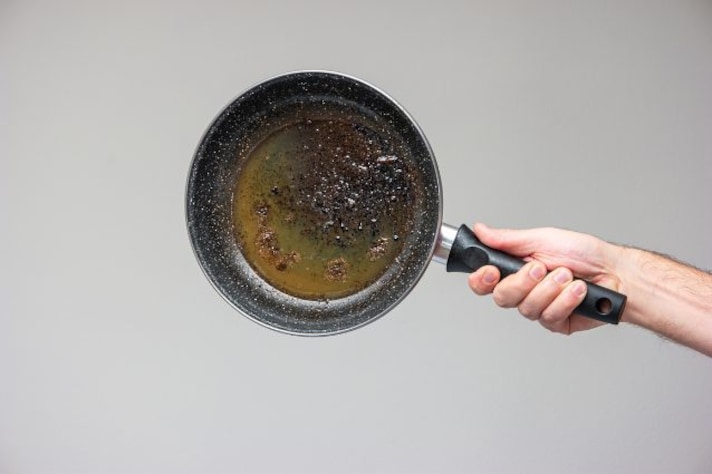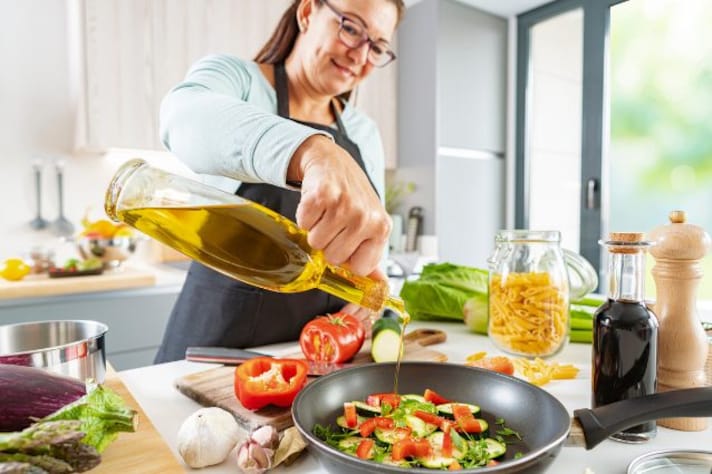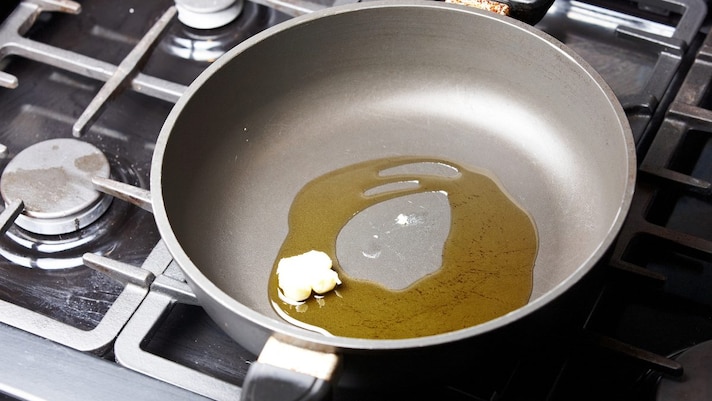Here’s Why You Should Never Let Your Olive Oil Burn When Cooking With It
Burning olive oil destroys its health benefits, creates a bitter taste, and can even pose safety risks like harmful fumes or fires. This happens because olive oil breaks down at high temperatures, losing its nutritional value and ruining dishes with a burnt flavor. To avoid this, cook with medium heat, preheat the pan, and keep a close eye on your oil to ensure it doesn’t burn.

Olive oil is a kitchen essential, prized not just for its rich flavor but also for its versatility. We drizzle it over salads, dunk our bread in it, and yes, use it to cook everything from vegetables to delicate meats. Its ability to withstand relatively high temperatures makes it a go-to for sautéing and frying. But even though olive oil can handle some heat, letting it burn is a big no-no. Here’s why you should always keep an eye on your pan and make sure your olive oil never crosses the line from golden to burnt.
Why Olive Oil Should Never Burn
When olive oil reaches its smoking point (typically around 375°F for extra virgin olive oil), things start to go wrong. At this stage, the oil begins to break down and oxidize, losing its healthy properties. Olive oil is packed with heart-healthy fats and antioxidants, but once it burns, those benefits go up in smoke—literally. The burning process creates free radicals and harmful compounds that not only ruin the oil’s flavor but also make it less nutritious. So, if you’re cooking with olive oil for its health perks, burning it essentially defeats the purpose.

A Burnt Flavor Means a Ruined Dish
Besides the health concerns, burning olive oil does your dish no favors. Once olive oil burns, it develops a harsh, bitter flavor that will overpower anything you’re cooking. That sautéed garlic you were planning to toss into pasta? Forget about it—it’s going to taste like charred disappointment. The delicate flavor of olive oil is meant to enhance your dish, not ruin it. And since it’s often the foundation of so many recipes, once the oil burns, your entire dish can go downhill fast. No one wants their dinner to taste like the remnants of a burnt-out campfire.
The Safety Risks of Burning Olive Oil
It’s not just about flavor and nutrition—burning olive oil can actually be dangerous. When oil hits its smoke point, it starts to release fumes and chemicals, including acrolein, which is an irritant to the respiratory system. If you’ve ever accidentally inhaled the smoke from burnt oil, you know how quickly it can send you coughing and running for fresh air. In more extreme cases, letting olive oil burn could even lead to kitchen fires if the oil reaches a high enough temperature and ignites. In other words, burning olive oil can turn your cooking session into a recipe for disaster.

How to Prevent Olive Oil from Burning
Now that we’ve covered why burning olive oil is a bad idea, let’s talk about how to avoid it. First, always keep an eye on the heat. Olive oil is best used over medium heat for sautéing and frying, rather than high heat, which risks pushing it past its smoking point. If you need to cook something at a higher temperature, consider using a different oil, like avocado or vegetable oil, which have higher smoke points.
Another tip? Preheat your pan before adding olive oil. This allows the oil to heat more evenly and reduces the risk of burning. And remember, once you see a slight shimmer in the oil, you’re good to go—it’s hot enough to cook but not too hot to burn. Lastly, don’t walk away from the stove when using olive oil. Cooking is part science, part art—and in this case, you’re the artist who needs to prevent their masterpiece from going up in smoke!
;Resize,width=767;)
;Resize,width=712;)


